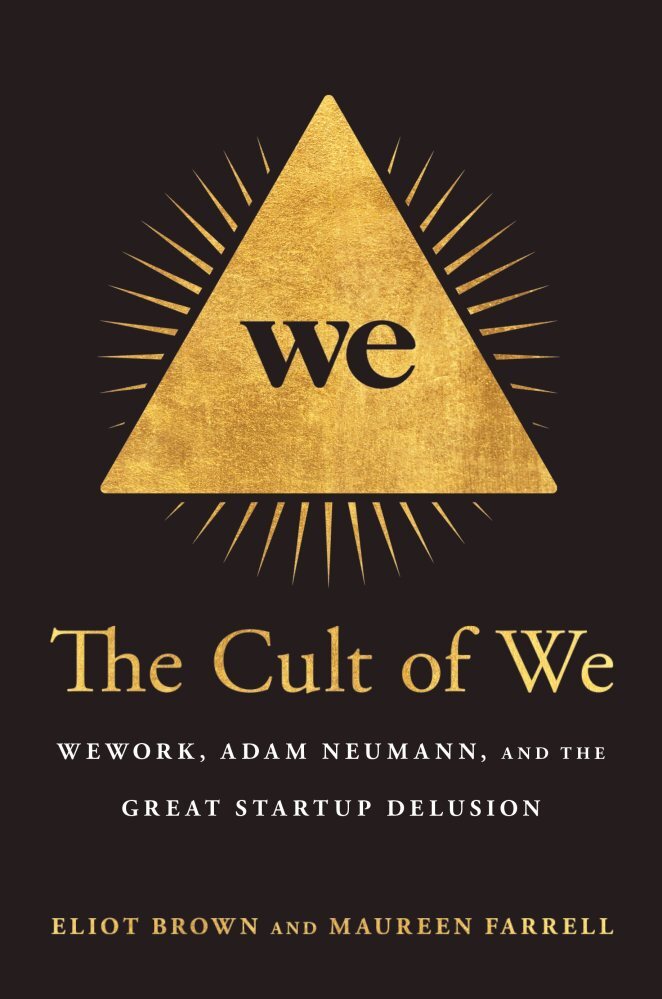
WeWork’s rise and fall captured brilliantly in The Cult of We, a tale of how dumb ‘smart money’ can be
- Adam Neumann sold his co-working space start-up as a tech firm and a disrupter, but it was neither, write Eliot Brown and Maureen Farrell
- In a tale that’s smoothly told and with the pace of a John Grisham legal thriller, they bring to life a big cast of characters and make financial arcana simple
The Cult of We – WeWork, Adam Neumann, and the Great Startup Delusion by Eliot Brown and Maureen Farrell, pub. Random House
This is a story about unicorns. Not the pointy-foreheaded horses of myth, but present-day companies valued at a billion dollars despite producing little in the way of profit. Or even despite continuous vast losses, as in the case of office subleasing company WeWork – a unicorn that turned out to be a donkey with delusions of grandeur.
The Wall Street Journal’s Eliot Brown and Maureen Farrell watched WeWork’s rapid rise to a valuation in the tens of billions of dollars, writing frequently about the company and its charismatic Israeli co-founder, Adam Neumann.
Yet the pair’s The Cult of We is no hasty assemblage of previously published material, but a smoothly told account that manages to bring to life a vast cast of characters and to make financial arcana simple to understand, while at the same time maintaining the pace of a John Grisham legal thriller.

It deserves to be transformed into a film – a cross between The Social Network (2010) and The Big Short (2015).
This is a book for lovers of Schadenfreude, although Brown and Farrell act as the chorus in a Greek tragedy, providing detached and measured commentary on the tragedy as it unfolds largely as a consequence of the hubris of those involved.
But they do make clear from the beginning that WeWork, although it tries incoherently to present itself as something quite different, is just a real estate business, and certainly not one of the shooting-star tech companies that Neumann wishes to emulate.
WeWork, a slender version of which still exists in Hong Kong and elsewhere, simply hires sections of office buildings, breaks the space down into smaller parcels with shared facilities, and sublets it. More people can be crammed in than with conventional office layouts, and therein lies a modest margin of profit. Even when WeWork was founded, in 2010, this wasn’t an original idea.
With a true tech company the revenue soars away from the costs as sales increase, but to increase income from property you have to buy more property. Some economies of scale are possible with administration, but in general the relationship of costs to revenue stays much the same even with diligent management, let alone with the chaos at WeWork the authors describe. Whatever WeWork was, it was not an Uber, Amazon or Snapchat, among whose numbers it wished to be counted.

Brown and Farrell are not being merely wise after the event. Time and again they tell us, underling analysts advised their bosses of the limitations of WeWork’s business. But fund-managing “geniuses” fell for Neumann’s chutzpah, put gut feelings ahead of common sense, reasoned that to disrupt a sector of the economy was always going to be expensive, and that rocketing growth was what mattered. Profits would eventually follow.
But by 2014 WeWork was spending US$2 for every US$1 taken in. In 2016 it was losing US$1 million a day.
WeWork differed from its competitors in a certain self-conscious targeting of millennials. There was free coffee, and much talk of networking and synergy between start-up businesses and small-scale professionals sharing a space. When WeWork did finally show signs of being digital it was in the form of an app to connect “members” (those who rented space). But almost nobody used it.
Neumann assured himself of generous benefits, took vast sums out of the company, bought multiple properties and hired an extensive team of personal staff over the course of its tequila- and marijuana-fuelled rise.
Whom the gods would destroy they first make rich.
The company bought unrelated businesses such as a wave pool manufacturer, and started a school. Far too many executives were friends or relations, often with ill-defined roles. Neumann had multiple conflicts of interest, such as buying property that he then leased to WeWork, putting himself on both sides of rent negotiations. The board largely failed to restrain him.
Neumann was finally ejected following a much-delayed attempt to float the company publicly in 2019, which forced it finally to be transparent about its financial situation. Existing investors were horrified, and potential purchasers of the stock were few. The company’s valuation plummeted to a mere US$8 billion. The flotation was cancelled.
The Cult of We is a deliciously told tale of how “smart money” can be extremely dumb.

